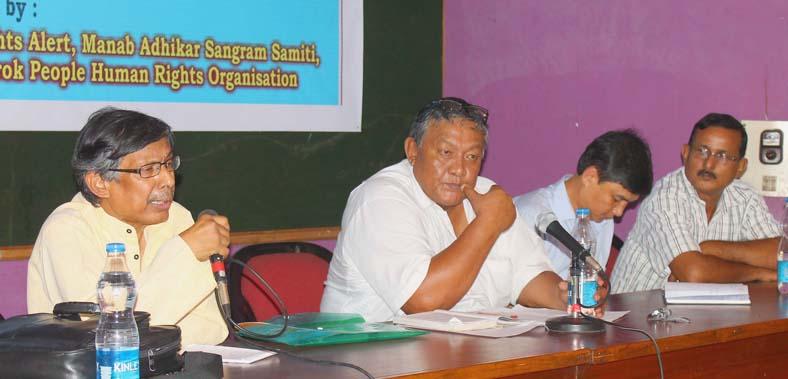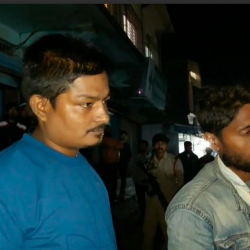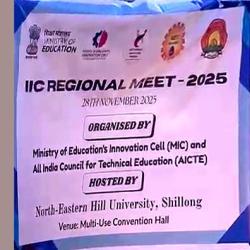While the Narendra Modi government in place is all prepared to modify and uphold its international obligations to emerge as a major power in the world stage, several leading civil society organizations, social research groups, legal practitioners, academics and youths assembled Thursday to discuss the various aspects of the imposition and continuance of the draconian Armed Forces Special Powers Act, 1958 (AFSPA).
AFSPA is imposed in the Northeast states of Assam, Manipur, Meghalaya, Nagaland, Tripura and the Union Territories of Arunachal Pradesh and Mizoram. It is put into force in areas declared as 'disturbed area,' by the Central Government and reserves the power to apply AFSPA in any area it wishes in the Northeast.
According to the Disturbed Areas (Special Courts) Act, 1976, an area may be declared disturbed when "a State Government is satisfied that there was, or there is, in any area within a State extensive disturbance of the public peace and tranquility, by reason of differences or disputes between members of different religions, racial, language, or regional groups or castes or communities, it may ... declare such area to be a disturbed area."
Anjuman Ara Begum, Program Officer, India Desk at Asian Legal Resource Centre, Asian Human Rights Commission describing AFPSA in the region says, “The practice of declaring an area as a 'disturbed area' began with Assam. Assam was declared a 'disturbed area' for the first time in 1955 under the Disturbed Areas Act, 1955 (DAA) at a time when the current Nagaland state was still a part of it. Nagaland became a separate state in 1963, and remained 'disturbed'. In November 1990, again, the entire state of Assam was declared a 'disturbed area', under AFSPA and the DAA, with the argument that the use of armed forces to aid civilian government was necessary to counter the United Liberation Front of Assam (ULFA) sponsored militancy. Assam still remains 'disturbed'.”
With Assam now being declared Maoists infested the 'disturbed area' tag remains with the extension of additional 20 kilometers into the bordering states of Arunachal Pradesh and Meghalaya for another year.
Armed Forces (Special Powers) Act, 1958 or AFSPA was passed in the Parliament on September 11, 1958 as a temporary measure. Fifty six years on, the Act is still in force despite several calls for its repeal and is an excuse for legalizing repression and impunity.
Many official bodies of the Government of India and international human rights organizations have called for its repeal repetitively without any positive response from the government. AFSPA has came up prominently in different national and international forum branding it as symbol of oppression and several recommendations were made either to repeal or to review the Act immediately.
Recalling the innumerable barbaric atrocities and human rights violations and secret killings committed by the deployed army personnel in the northeast states of India Apurba Kumar Baruah, Former Dean, Social Sciences, North East Hill University and National Fellow, ICSSR, New Delhi held that AFSPA is against the spirit of fair jurisprudence and that everything legal may not be just.
Despite its enforcement AFPSA has not been able to bring down armed struggle in the region. It is increasingly being used to gag and subvert the democratic voices against the unsustainable, predatory and anti-people mega dams and other development projects. It is imperative that each one irrespective of ideology, caste, creed and sex must therefore step forward to build pressure to do away with AFSPA. It is necessary to reorganize the state, he echoed.
AFSPA voilates Article 21 (Right to life), Article 22 (Protection against arrest and detention) of the Indian Constitution and the Indian Criminal Procedure Code (CrPC). Members of the Armed Forces in the whole of the Indian territory are protected from arrests for anything committed within the line of official duty by Section 45 of the CrPC. Section 6 of the AFSPA provides them with absolute immunity for all atrocities committed under the AFSPA. A person wishing to file a suit against a member of the armed forces for abuses under the AFSPA must first seek permission from the Central Government.
Babloo Loitongbam, Executive director, Human Rights Alert, Manipur stated that law courts cannot question AFSPA and that the do's and don't's are followed in aberrations rather than in compliance. AFSPA violates all rules of war understood internationally. For instance with reference to Nagaland if two sides are at war in defence or offence, International Humanitarian Law becomes applicable and AFSPA cannot be imposed, he said.
AFSPA by the virtue of its architecture is a military regulation. It has severely trampled upon International Laws like the Universal Declaration of Human Rights (UDHR), The International Covenant on Civil and Political Rights (ICCPR), The Convention Against Torture, the UN Code of Conduct for Law Enforcement Officials, The UN Body of Principles for the Protection of All Persons Under any form of Detention and The UN Principles on Effective Prevention and Investigation of Extra- legal and summary executions.
Eminent Naga writer Kaka Iralu, Bubumoni Goswami, Secretary, Manab Adhikar Sangram Samiti, Associate Professor, Akhil Ranjan Dutta, Department of Political Science, Gauhati University, Jiten Yumnam, Centre for Research and Advocacy, Manipur, Sinam Prakash Singh, Secretary General, North East Students' Organization, Bijon Mahajan, advocate, Gauhati High Court, Fr. Melvine, North East Social Research Centre, Guwahati, members of WinG and representatives from all the Northeast states participated in the conclave and shared their experiences.
The then President of India signed the AFSPA Act on September 11, 1958. The same day (9/11) is now observed as anti-terrorism day. The struggle against state terrorism too gathered force the same day for the inalienable civil, political and cultural rights of the peoples of Northeast India with the imposition of AFSPA 56 years ago.
Outraged by the horrendous stories of atrocities committed by the armed forces of the Union, including aerial bombing, forced grouping and regrouping of villages, burning down of villages, enforced disappearances, extrajudicial executions, rape and other forms of sexual violence, torture and inhumane degrading treatment under the impunity provided by the AFSPA the convention resolved to take up intensive mobilization of the masses of Northeast India to oppose AFSPA and the struggle against it by linking up with other peoples’ movements in the region.
It is in complete agreement on constituting a Northeast Indian platform for a broader coordination and coalition of various human rights groups, civil society organizations, peoples’ movements at both regional as well as at all-India level by going beyond ethnic, tribal and community affiliations.
Encouraged by the fact wherein various official Commissions and Committees set up by the Government of India has unanimously recommend the repeal of AFSPA the convention aims to lobby with MPs from Northeast India as well as other sympathetic parliamentarians to facilitate procedural and substantive actions to repeal AFPSA at the earliest.
The Modi government is in favor of the continuation of the Act in Jammu and Kashmir but its position on the Act in Northeast India is far from evident.
It is to be noted that Cristof Heyns, the UN Special Rapporteur on extrajudicial, summary or arbitrary executions in his report to the UN Human Rights Council in 2012 stated that the powers granted under AFSPA are in reality broader than that allowable under a state of emergency as the right to life may effectively be suspended under the Act and the safeguards applicable in a state of emergency are absent. Moreover, the widespread deployment of the military creates an environment in which the exception becomes the rule, and the use of lethal force is seen as the primary response to conflict. Calling for the repeal of the law, he said that “retaining a law such as AFSPA runs counter to the principles of democracy and human rights.”
- 10329 reads









Add new comment